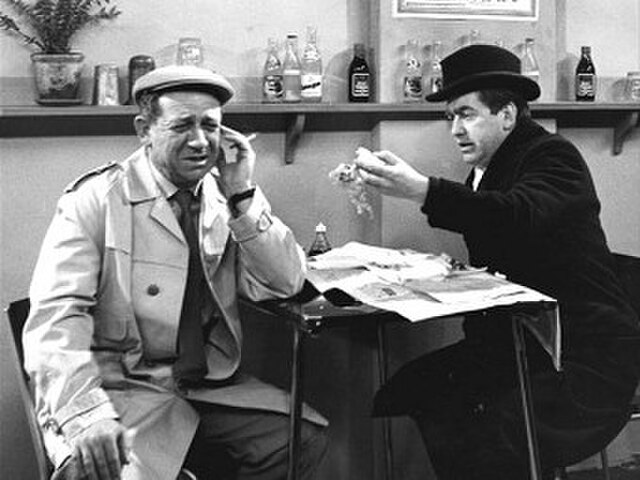Television comedy is a category of broadcasting that has been present since the early days of entertainment media. While there are several genres of comedy, some of the first ones aired were variety shows. One of the first United States television programs was the comedy-variety show Texaco Star Theater, which was most prominent in the years that it featured Milton Berle - from 1948 to 1956. The range of television comedy has become broader, with the addition of sitcoms, improvisational comedy, and stand-up comedy, while also adding comedic aspects into other television genres, including drama and news. Television comedy provides opportunities for viewers to relate the content in these shows to society. Some audience members may have similar views about certain comedic aspects of shows, while others will take different perspectives. This also relates to developing new social norms, sometimes acting as the medium that introduces these transitions.

Cast of I Love Lucy, listed clockwise from top left: William Frawley (Fred Mertz), Desi Arnaz (Ricky Ricardo), Lucille Ball (Lucy Ricardo), and Vivian Vance (Ethel Mertz)
Ellen DeGeneres, pictured here in 1997. She made a large impact on television when she came out as lesbian on her sitcom, Ellen (1994–1998).
Hancock's Half Hour was a BBC radio comedy, and later television comedy series, broadcast from 1954 to 1961 and written by Ray Galton and Alan Simpson. The series starred Tony Hancock, with Sidney James; the radio version also co-starred, at various times, Moira Lister, Andrée Melly, Hattie Jacques, Bill Kerr and Kenneth Williams. The final television series, renamed simply Hancock, starred Hancock alone.
Titlescreen of the 1957 series 2 TV episode "The Alpine Holiday", featuring a diagramatic illustration of the show's title; the "Hancock" musical motif (composed by Wally Stott), a cartoon of the tuba player, Tony Hancock reading the script and a broadcast clock showing the start and length of the episode.
Tony Hancock (right) and Sid James




